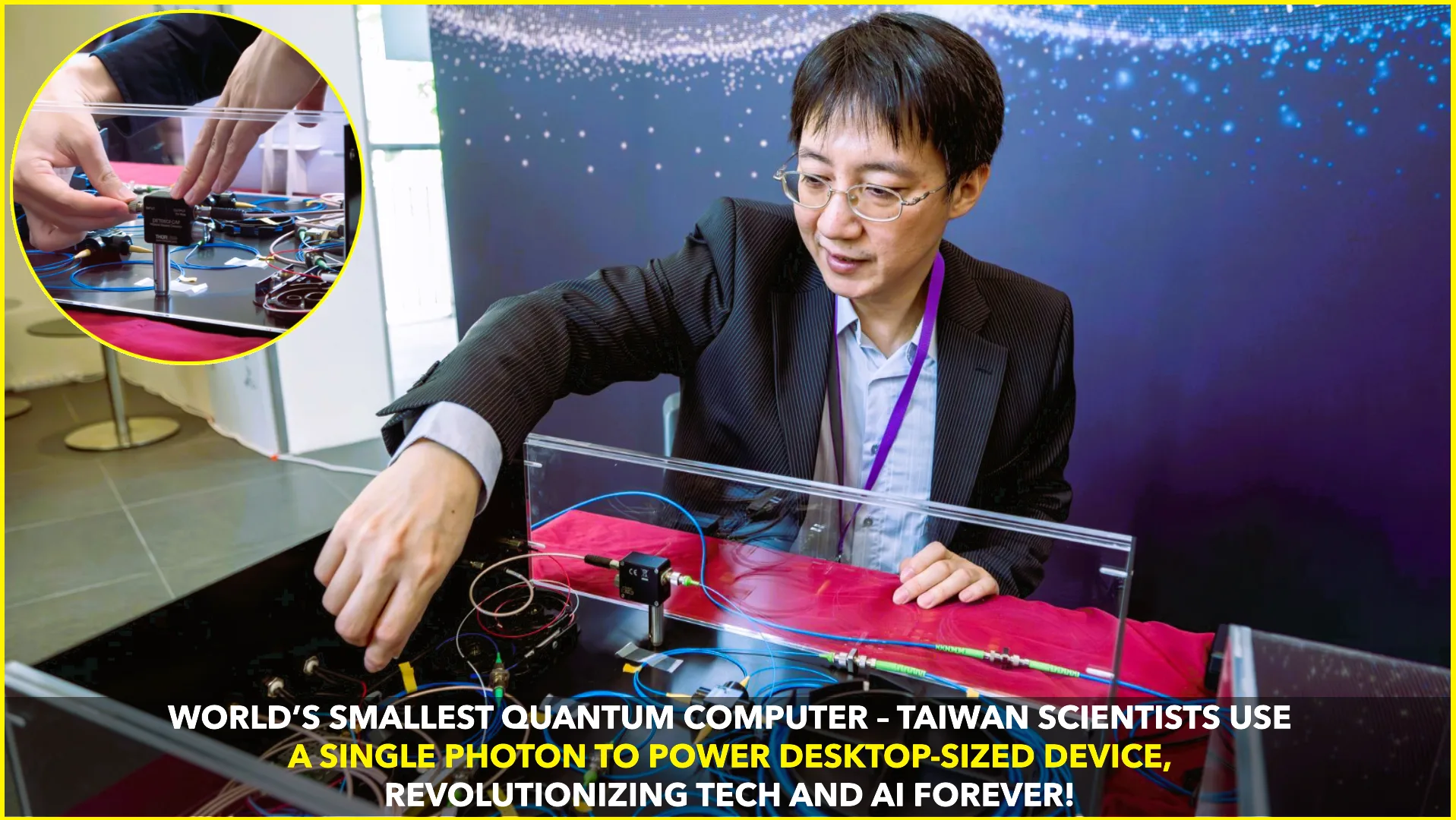Taipei, Taiwan – In a groundbreaking advancement for quantum technology, a team of scientists from National Tsing Hua University (NTHU) in Taiwan has developed the world’s smallest quantum computer—powered by just a single photon. This innovation, which challenges conventional thinking about quantum hardware, marks Taiwan’s entry into the elite group of nations pushing the frontiers of quantum computing.
The research team, led by Professor Chih-Sung Chuu, has unveiled Taiwan’s first optical quantum computer, which remarkably operates at room temperature and is compact enough to sit on a standard desk. Traditional quantum computers often require ultra-low temperatures and large, complex setups involving superconducting materials or ion traps. In contrast, this device uses light, particularly single photons, to perform high-level computations.
A Single Photon with the Power of 32 Qubits
What makes this quantum computer stand out is its use of a single photon to store and manipulate 32 distinct quantum states. To put that in perspective, it’s akin to turning a one-seater bicycle into a 32-seater without expanding its size. This feat was made possible by encoding information across different quantum modes of light, such as polarization, time-bin, and spatial modes.
This innovation significantly addresses one of quantum computing’s major challenges: the difficulty of producing, maintaining, and synchronizing multiple photons or qubits. “By packing more information into one photon, we simplify the entire process and reduce the chances of error,” explained Professor Chuu during a press briefing. “Our work demonstrates that complex quantum operations can be achieved without a room full of equipment.”
Room-Temperature Operation: A Game-Changer
One of the key advantages of NTHU’s quantum device is that it doesn’t require the sub-zero cooling systems typically needed for quantum systems to function. This not only reduces operational costs but also increases the accessibility of quantum computing for practical applications.
“The ability to perform quantum calculations on a room-temperature, tabletop device opens up a future where quantum computing could be used in regular office environments,” said Chuu.
Implications for AI, Cybersecurity, and Medicine
The potential applications of this compact quantum machine are vast. From accelerating artificial intelligence (AI) algorithms to enhancing cybersecurity through advanced encryption techniques, the power of quantum computing could soon become more widely available. The healthcare sector may also benefit through improved drug discovery and complex medical simulations that classical computers cannot handle efficiently.
Moreover, the photonic approach employed by the NTHU team is inherently faster and less prone to environmental noise, making it highly suitable for next-generation quantum communication and cloud-based quantum services.
Putting Taiwan on the Quantum Map
This achievement not only reflects the technical excellence of Taiwan’s research institutions but also signals the country’s rising role in global quantum innovation. Taiwan, already a critical player in the semiconductor industry, is now showing its capabilities in cutting-edge computing as well.
“Our goal is to continue scaling this technology and integrate it with other systems,” said Chuu. “We envision a future where quantum devices are as common and easy to use as today’s smartphones.”
This breakthrough positions Taiwan as a serious contender in the global race for quantum supremacy, traditionally led by the United States, China, and European nations.
What’s Next?
The team plans to refine their design and explore commercialization pathways in partnership with industry and government stakeholders. There is also a focus on integrating their photonic quantum system into larger networks for distributed quantum computing.
As nations worldwide invest heavily in quantum technology, NTHU’s invention offers a glimpse into a future where powerful quantum machines may no longer be limited to national labs or tech giants.
Source: National Tsing Hua University press release, Taiwan News, Taipei Times










